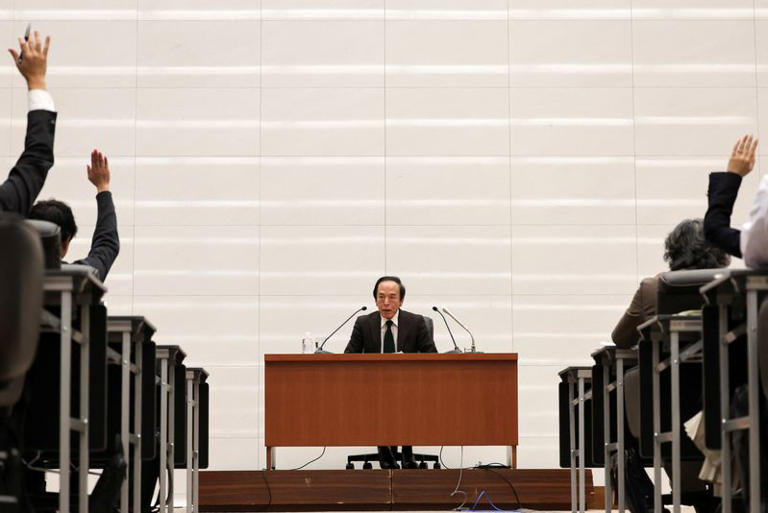According to a Reuters poll conducted on March 19-21, more than half of economists anticipate that the Bank of Japan (BOJ) will raise interest rates further this year, possibly to as high as 0.25%. The BOJ recently ended eight years of negative interest rates and other unconventional policies, hiking rates for the first time in 17 years to around zero. However, market players believe the central bank will proceed cautiously with additional increases to support a fragile economic recovery.
Among the economists polled, 54% expect another increase in short-term interest rates by year-end. While none predicted a rate hike before June, 14% foresee borrowing costs rising to either 0.20% or 0.25% in the July-September quarter. Analysts suggest that the government’s declaration of an end to deflation could influence the timing of rate hikes, with some leaning towards September or October.
The fourth quarter appears to be the most favored timing for the next rate hike, with 43% of economists expecting a move then. The median forecast rate by the end of 2024 is 0.20%. Additionally, some economists believe the next rate hike may occur next year, with different quarters being identified as potential timing.
Three-fourths of economists view the risk of the BOJ increasing rates faster than expected as a significant concern. However, BOJ Governor Kazuo Ueda has emphasized the maintenance of accommodative conditions, highlighting the distance for inflation expectations to reach 2%.
Regarding the BOJ’s balance sheet, half of economists predict that the central bank will start reducing it from the second half of next year or later.
According to a recent Reuters poll conducted between March 19-21, there is a prevailing sentiment among economists that the Bank of Japan (BOJ) may pursue further increases in interest rates throughout the remainder of the year. This potential trajectory could see rates climb as high as 0.25%, marking a significant shift in monetary policy. This expectation comes in the wake of the BOJ’s landmark decision to conclude its eight-year period of negative interest rates and other unconventional policies, opting instead to raise rates to around zero for the first time in nearly two decades.
While the initial rate adjustment signals a departure from the prolonged era of aggressive monetary stimulus, economists caution that subsequent rate hikes are likely to be approached cautiously. The prevailing sentiment among market participants underscores the delicate balance the central bank must strike to support economic recovery without derailing progress.
Among the economists surveyed, a majority, comprising 54%, anticipate that the BOJ will enact another increase in short-term interest rates by the end of the year. Although there are no predictions for rate adjustments before June, a notable portion, accounting for 14% of respondents, foresee borrowing costs climbing to either 0.20% or 0.25% by the third quarter of the year. Analysts suggest that the timing of future rate hikes could be influenced by broader economic indicators, with considerations such as inflation expectations and policy announcements from the government shaping expectations.
The consensus among economists points towards the fourth quarter as the most favored timing for the next rate hike, with 43% of respondents indicating such. However, there are differing perspectives on the exact timing of future rate adjustments, with some economists suggesting potential moves may extend into the next year.
Despite the anticipation of further rate increases, economists are mindful of the potential risks associated with a more aggressive tightening cycle by the BOJ. Concerns regarding the pace of rate hikes relative to economic conditions and inflation targets remain prevalent among market participants. However, BOJ Governor Kazuo Ueda has reiterated the central bank’s commitment to maintaining accommodative conditions, emphasizing the need for measured policy adjustments.
In addition to interest rate changes, economists are closely monitoring the BOJ’s balance sheet management. Half of the respondents anticipate that the central bank may begin reducing its balance sheet from the second half of next year onwards. This gradual approach to balance sheet normalization reflects ongoing efforts to recalibrate monetary policy in line with evolving economic conditions and inflation dynamics.
